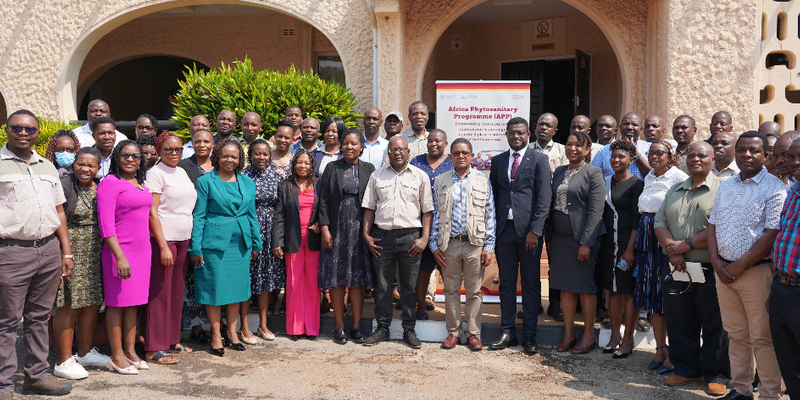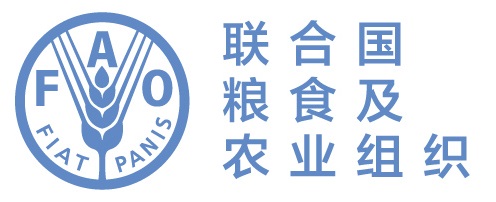津巴布韦加强关键限定有害生物数字监测能力建设
Posted on Thu, 25 Sep 2025, 11:52

非洲地区在加强数字监测和技术能力、保护植物资源及促进安全贸易方面取得具有里程碑意义的区域性成就,与会者合影留念。 ©粮农组织/Kevin Mazorodze
粮农组织、IPPC与津巴布韦政府联合举办培训会,提升该国保护植物资源和促进贸易的能力
2025年9月25日
津巴布韦正于本周举办一场关键培训研讨会,以加强当地对主要限定有害生物的数字监测能力。此次研讨会汇集了50多名国家级监测技术人员参加,期间将开展有关有害生物识别、移动数据采集和地理空间制图的实操培训。
该研讨会在“非洲植物检疫计划”(下称“APP计划”)框架下举办。“APP计划”由国际植物保护公约(下称“IPPC”)秘书处和非洲联盟委员会(AUC)农业、农村发展、蓝色经济和可持续环境部(ARBE)合作发起,并与联合国粮食及农业组织(下称“粮农组织”)共同实施。本次培训重点提升植物检疫官员使用数字工具监测五种关键限定有害生物——香蕉镰刀菌枯萎病、柑橘木虱、柑橘黄龙病、香蕉束顶病毒及实蝇属(Bactrocera spp.)——的技术能力。植物有害生物是粮食安全和农产品贸易的重大威胁。
津巴布韦土地、农业、渔业、水资源和农村发展部科研、教育与专业服务司司长Dumisani Kutyawo博士在开幕致辞中表示:“大家在培训过程中不仅能温故知新,还能获得在有害生物识别、田间监测、数字数据采集和及时报告方面的实用技能。在IPPC秘书处、粮农组织及合作伙伴的支持下,各位还将配备数字监测工具和平板电脑,以提高数据采集和疫情报告的速度与准确性。”
2023年“APP计划”启动时,在埃及举行过一场“培训师培训会”。当时,来自津巴布韦和其他10个试点国家的专家在会上学习使用了“APP计划”配套的各类数字工具。此次培训研讨会在上述“培训师培训会”成果的基础上举行,目标是将相关技能传授给更多一线技术人员和管理人员,确保有害生物监测工作不仅在国家层面得到加强,还能在整个非洲大陆实现系统化协调。本轮“APP计划”国家级系列研讨会于津巴布韦率先举行,后续将在今年年底之前覆盖其余七个实施国,预计将为非洲大陆超过300名工作人员提供培训。
IPPC秘书处标准实施促进官员Descartes Koumba表示:“利用数字工具赋能非洲各国,以开展有害生物常态化监测和数据采集,这将确保非洲国家遵守植物健康标准,包括维持非疫区和履行有害生物强制报告义务。”
“我希望在培训结束时,学员们能够有效掌握这些工具,并在全国范围内积极推动‘APP计划’。” Descartes Koumba如是补充道。
从理论到可持续实践
在“APP计划”支持下,IPPC向农业部科研、教育与专业服务司提供了40多台预装有计划配套应用程序的平板电脑。相关支持工作大大增强了津巴布韦的田间监测能力,提升了其国家植物检疫体系水平,使该国已成为引领非洲大陆进行数字化现代植物健康监测的先行者。。
研讨会内容包括理论课程和实践应用,涵盖有关五种主要有害生物生物学特征、识别方法和调查规程的介绍。学员还将学习如何使用“APP计划”配套移动应用程序和ArcGIS Hub开展数据采集与存储工作。
研讨会的一大亮点是为期一天的实地考察。学员们将针对实际监测活动进行模拟演练,包括采集样本、使用平板电脑记录数据,并将研讨会上所学的数字技术运用到实处。这种沉浸式体验不仅能确保学员理解相关概念,还能增强其在真实田间条件下开展监测工作的信心。
为巩固培训成果,确保能力建设工作持续进行,学员们还将制定跨省协作的有害生物监测方案,在各省、各区(包括入境口岸)把培训所学内容转化为切实可行的战略方案。
此前在“APP计划”试点阶段受训的资深培训师也参与了此次研讨会,使知识传承和制度性记忆得到了进一步强化。研讨会结束后,还将开展数据回顾、图表绘制和总结反思等活动,帮助学员巩固学习成果,并为后续监测工作做好准备。
“非洲植物检疫计划”
“APP计划”旨在全面提升非洲五十四国植物检疫人员的技术能力,使其能利用现代科学方法和先进数字技术,加强有害生物监测、诊断、检测、报告、预防和疫情恢复能力。该计划目前正在20个非洲国家实施,其中11个国家——喀麦隆、刚果民主共和国、埃及、几内亚比绍、肯尼亚、马里、摩洛哥、塞拉利昂、乌干达、赞比亚和津巴布韦——处于试点阶段,另有9个国家——阿尔及利亚、佛得角、乍得、刚果共和国、利比里亚、马拉维、塞内加尔、南非和突尼斯——已进入第二阶段。欧盟委员会和大不列颠及北爱尔兰联合王国政府为“APP计划”提供资金支持。
联系方式 Kevin Mazorodze 宣传专家 粮农组织南部非洲次区域办事处 手机号码:+263-718-529889
本文原刊登于粮农组织非洲区域办事处官网: https://www.fao.org/africa/news-stories/news-detail/enhancing-local-capacity-for-digital-surveillance-of-key-quarantine-pests-in-zimbabwe/en

